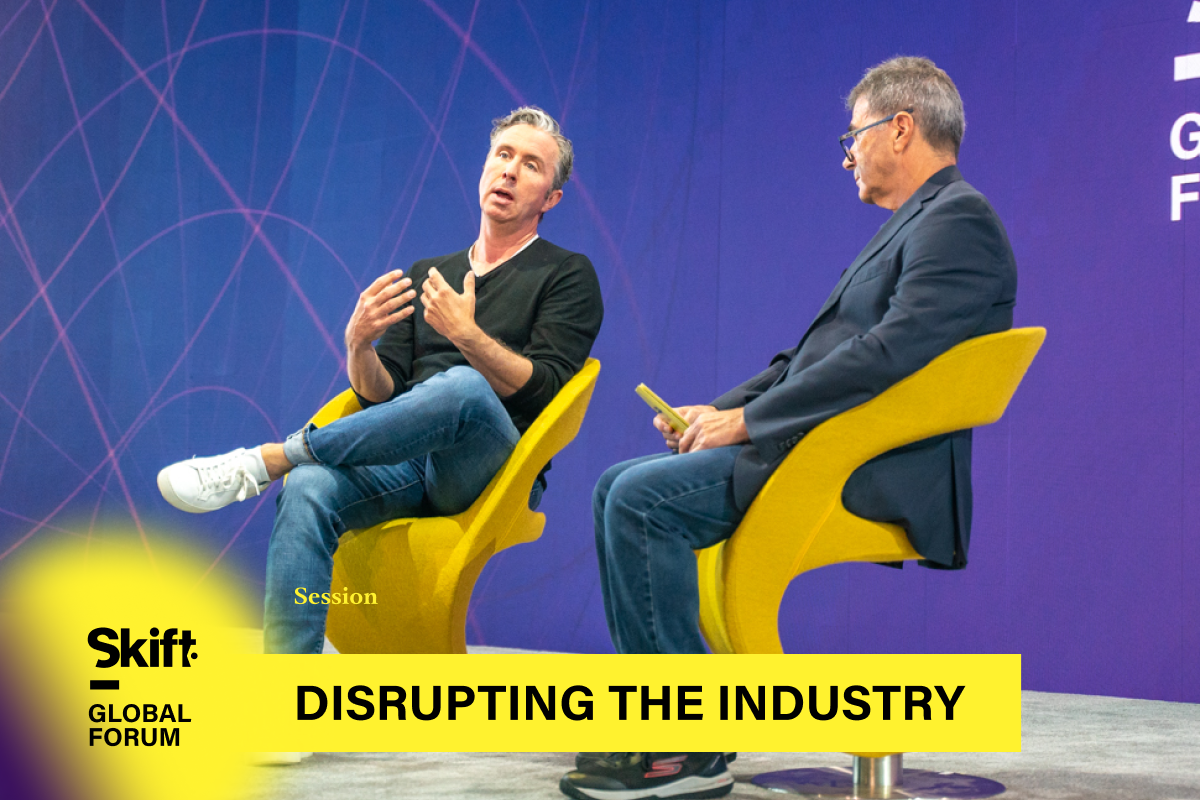Hopper CEO Fred Lalonde: Growth Plans and Defending Fintech – Full Video

Skift Take
Just days before announcing a reduction in its workforce, Hopper CEO Fred Lalonde joined Dennis Schaal, executive editor and founding editor of Skift, at the 10th Skift Global Forum to discuss the company's strategic direction and profit goals.
Lalonde also addressed the breakup with Expedia. Lalonde stated that Hopper's fintech products "have high customer satisfaction rates and have been successful in protecting customers' travel investments."
Watch the full video of Lalonde's interview:
https://www.youtube.com/watch?v=2ut-yzVqi_g Interview TranscriptDennis Schaal: Fred, third year in a row, third time's a charm.
Frederic Lalonde: Thanks for having me again.
Schaal: Of course. So we've got a lot of news to get to, a lot of Hopper news, and then a lot of other topics. We're going to talk about everything from burn rates to Bunny Bootcamp. Get ready for that one.
Lalonde: We love bunnies.
Schaal: Some big Hopper news yesterday, they struck a deal with Hotelbeds and WebBeds, two bed banks to pick up about 700,000 hotels. So admit it, Fred, when Expedia ended their partnership with you, they removed about perhaps half of your hotels. Hopper said, "Nah, no impact." Got a little spin there, Fred, or what?
Lalonde: Your research team actually covered this. Expedia lost those bookings, not Hopper. So we've been multi-sourced since we started. We work with all sorts of players around the world. I think the thing that's been a little bit less covered is that we're 65% direct-
Schaal: In the US?
Lalonde: ... in North America, and we're inching onto that globally. I don't actually think those were Expedia's hotels. I think the hotels themselves own the inventory, and we've been working since 2016 to build those relationships directly with chains, independent properties. We're probably the first company to reach this scale since Booking and Expedia originally started doing that in the '90s.
So there was very, very little impact, and with this announcement we just made, we're actually building international supply, which is really important as our customer base continues to grow.
Schaal: So let's see if it shows up in the earnings report about how Expedia lost all this business from Hopper, TBD.
So the Expedia breakup... Okay, this was Expedia's Dear John letter to you. Actually, I think they said it in person, but
